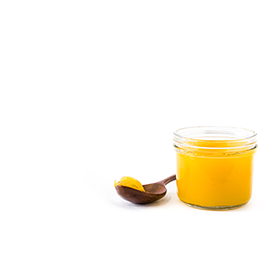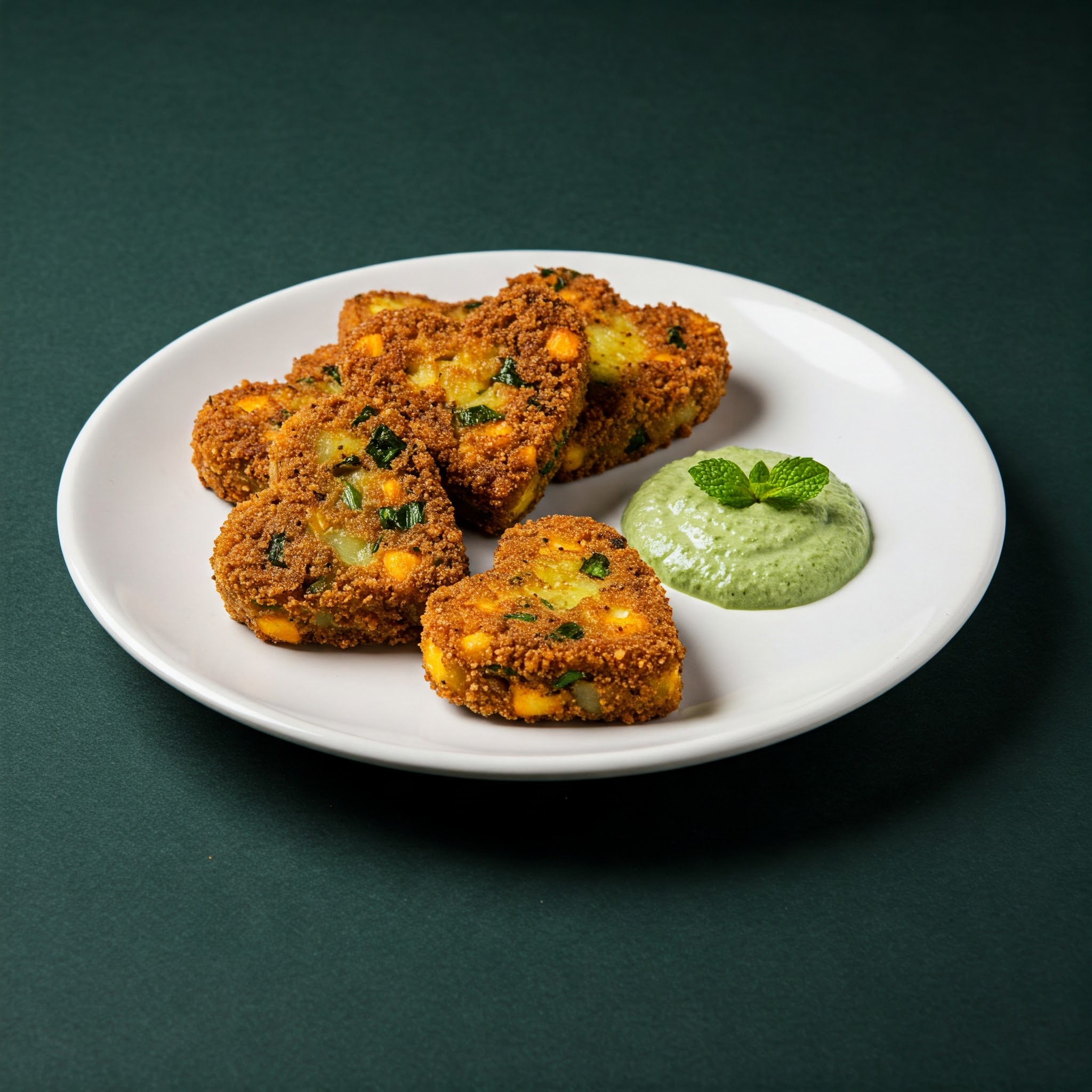Ghee (घी)
clarified butter

About Ghee
Ghee घी
Ghee is a natural food, Ghee, an essential ingredient in most of the Indian Cuisine, and is been there from ancient times. One of the important element of Ayurveda medicine and known as ghrita. Ghee is unbelievably delicious like French butter.
Butter and Ghee have similar nutritional and culinary properties; though both have few differences.
Ghee is more popular than the butter because of its higher smoke point and longer shelf life. People who consume pure home made ghee on a regular basis will have good physical strength, boots your immune system. Fat present in ghee is important for various vital functions like nervous, skin and mental health.
Ghee is also known to stimulate the digestive process, (as ghee is low in fat and easier to digest) which will help in weight loss.
People with LDL (bad) cholesterol level tend to increase in response to Ghee and they should limit their intake of Ghee to one or two tablespoons a day.
Ghee is an essential ingredient in many cuisines, particularly in Indian cooking, due to its rich flavor and high smoke point, making it suitable for various cooking methods. It is valued for its nutritional benefits, including healthy fats that can support heart health and promote digestive health. Ghee is also rich in fat-soluble vitamins, such as A, D, E, and K, which are important for overall well-being.
In addition to its culinary uses, ghee is recognized for its potential health benefits in traditional medicine, particularly in Ayurveda, where it is considered a source of vitality and nourishment. Overall, ghee plays a significant role in enhancing flavor and providing nutritional value in a balanced diet.
How to Store Ghee
To store Ghee effectively, begin by choosing a clean, dry, airtight container, preferably glass or stainless steel, to prevent moisture absorption. Once you’ve transferred the ghee, ensure the lid is tightly sealed. Keep the container in a cool, dark place, away from direct sunlight and heat sources, which can cause rancidity. For longer shelf life, consider refrigerating the ghee, as this will help maintain its freshness and flavor. Always use a clean, dry spoon when scooping out ghee to avoid contamination. This careful storage method will ensure that your ghee remains aromatic and delicious for months.
Shelf Life of Ghee
Ghee has a long shelf life of about 6 to 12 months when stored in an airtight container in a cool, dark place. Refrigeration can extend its freshness, preventing rancidity and spoilage.
How to Check Ghee Before Buying
When purchasing ghee from a local vendor, start by checking the packaging for any signs of tampering or damage. Look for a clear label that includes the ingredients, production date, and expiration date. Pure ghee should ideally contain only butterfat, with no additives or preservatives.
Examine the color; high-quality ghee typically has a rich golden-yellow hue. Smell it to ensure it has a pleasant, nutty aroma, and taste a small amount; it should have a smooth, creamy texture and a rich flavor without any rancid or off-tastes.
As for buying in bulk, it’s advisable if you frequently use ghee, as long as you have proper storage conditions to keep it fresh. Ghee has a long shelf life, but it's best stored in a cool, dark place in an airtight container to maintain its quality.
Explore
Explore our services and take your business to the next level.
Recent Posts

Lauki and Methi Thepla is the perfect addition to your balanced weekly menu. Pac...

Curd Sandwich is a fantastic addition to your balanced weekly menu, offering a h...

Kanda Bhaji is a delicious and crispy onion fritter, perfect for adding variety...

Capsicum Masala is the perfect dish to add variety and color to your weekly meal...

Paneer Potato and Kuttu Cutlets are the perfect addition to your weekly meal pla...
Ready for a Healthier You?
Take control of your wellness! Get a customized meal plan that fits your lifestyle. It's time to eat smarter, feel better, and transform your life!
Get Your Plan Now!Already a member? Login and start now!
Nutrition Facts
Serving Size:
Servings Per Container: 1
| Amount Per Serving | ||
|---|---|---|
| Calories | 884 | |
| Fat | ||
| Saturated Fat | ||
| Trans Fat | ||
| Cholesterol | 256 | |
| Sodium | 2 | |
| Carbs | .1 | |
| Fiber | ||
| Sugar | 0 | |
| Protein | 0.3 | |
| VitaminD | ||
| Calcium | 2 | |
| Iron | .1 | |
| Potassium | 3 | |
* Percent Daily Values are based on a 2000 calorie diet.
* Percent Daily Values are based on a 2000 calorie diet.




